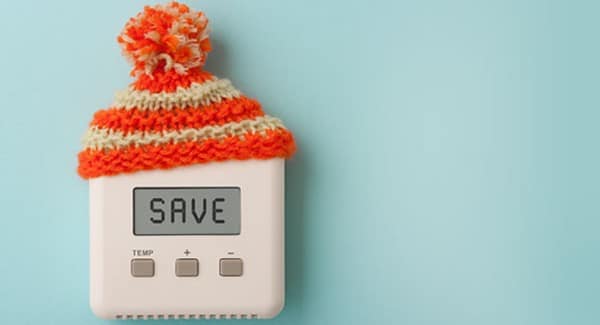Contrary to popular belief, Florida does get pretty cold in the winter. Here in North Central Florida, we spend many winter mornings scraping frost off of vehicle windshields. These colder temps mean that heating bills can be as high, or higher, than summer months. Aside from regular maintenance of your HVAC system, there are other steps you can take to save money on heating costs. Here are some useful tips for heating your home:
- Set your thermostat at 68°F or lower during the winter months. For each degree you increase the temperature from the recommended setting, your bill can increase up to 4%. You can also install programmable thermostats that control set temps when you’re out of the house — reducing cost. Some models allow you control the thermostat from your smartphone.
- Check your heating system’s filters once a month and clean or replace as needed. Maintaining the system helps it to run longer while using less energy.
- Weatherize your home. The Department of Energy confirms that you can save 30% off heating costs by simply caulking, sealing and weather-stripping around all windows, outside doors or where plumbing, ductwork and electrical wiring penetrate exterior walls, floors or ceilings.
- If you are considering buying a new HVACÂ system, make sure it is sized properly. An HVACÂ system that’s too large for your home can use more energy than necessary to heat and cool your home. A properly sized system can save you $600 a year.
- Install the thermostat on an inside wall, away from windows and doors. The thermostat records the temperature of your home (specifically the room in which it is placed) and uses that information to judge whether the heating or cooling system needs to kick on. If the thermostat is located near a window and heated by direct sunlight, it “thinks†the house is warmer than it actually feels. These inaccurate readings cause heating and cooling systems to waste a ton of energy unnecessarily.
- Use insulated or heavy curtains on windows that face north. Keep curtains and shades closed at night or on cloudy days. This especially helpful with drafty windows.
For more cost-saving information, visit the U.S. Department of Energy.
Your best bet when it comes to energy savings is to have your HVACÂ unit checked before the temperatures start to drop. A unit that is heating properly makes all the difference.
Still have questions or need an energy efficiency consultation for your home or business? Let one of our licensed HVAC energy saving experts help!





